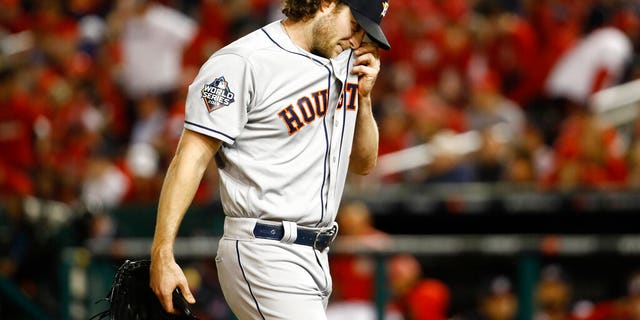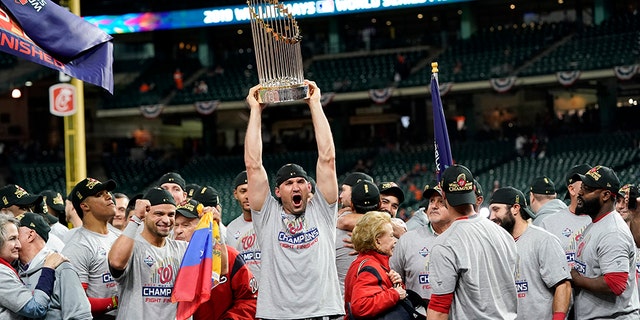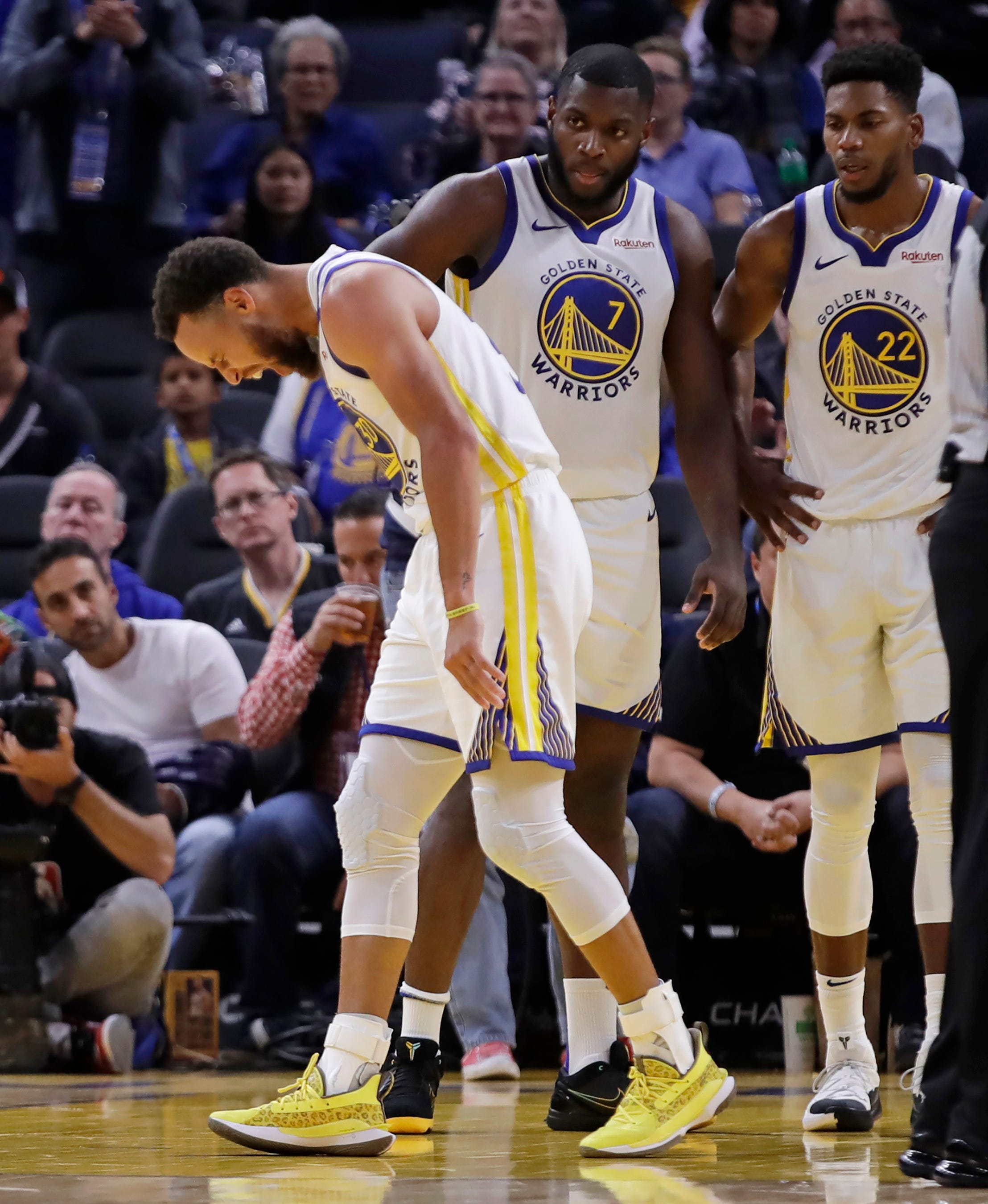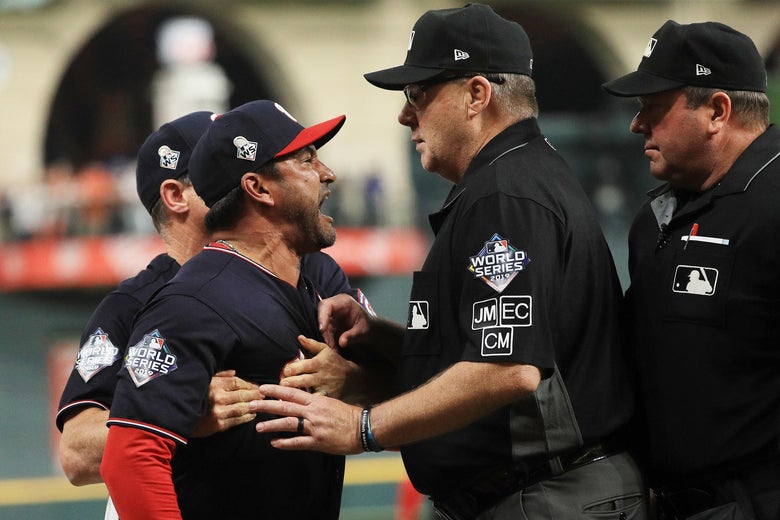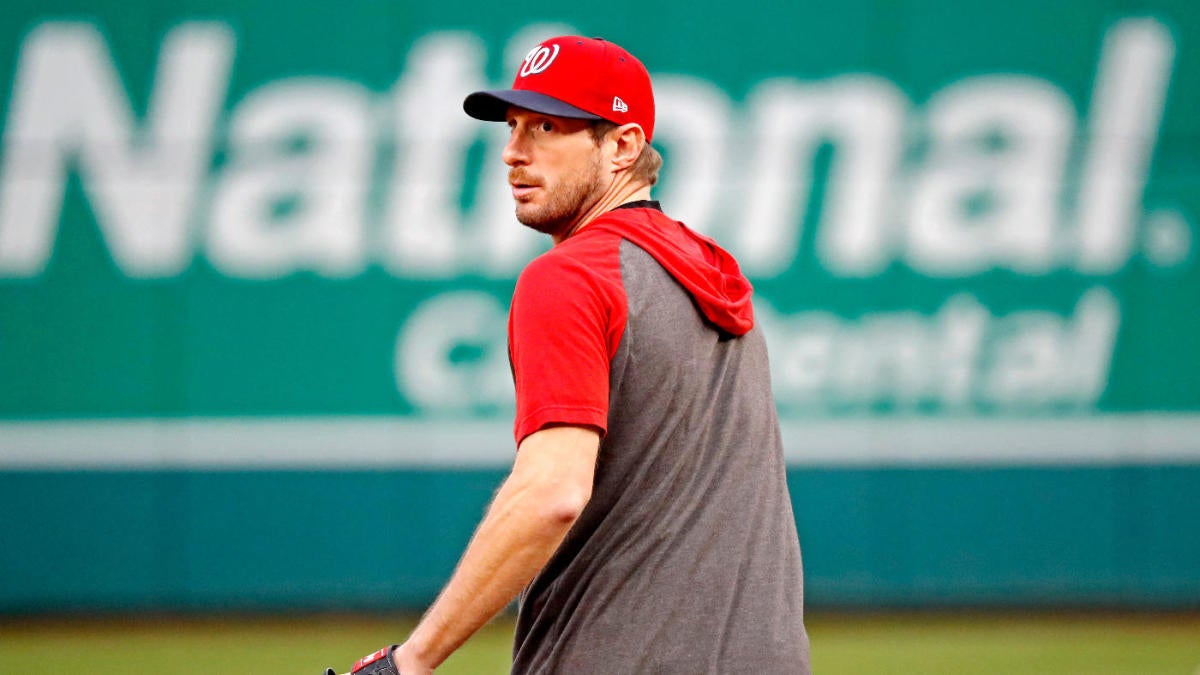Over the weekend, the Houston Astros demonstrated precisely why they would be worthy World Series champions. The list is long. They have new-age smarts and old-school grizzle, quantifiable talent and nebulous moxie. Their players process information the opposition provides them — and pounce. The only thing they haven’t done in this World Series is win a game at home. If they do that once, they’ll take the trophy, and no one will argue they didn’t deserve it.
That’s the most important part of the path ahead for the Washington Nationals: It’s the Astros who are in the way, and the Astros — winners of 107 games in the regular season, World Series champs in 2017 — are as daunting an obstacle as baseball can present. Throw in a couple of practical problems — the Nats suddenly can’t hit, and no team has ever won all four games of the World Series on the road — and what lies ahead in Houston seems unsolvable.
[For the most coveted free-agents-to-be, this World Series is a maybe-goodbye]
Last I checked, though, they’re going to play Game 6 with the possibility of one more beyond that. The Nationals, dominated for three games at home and trailing 3-2 in the series, have a road forward. Might as well lean on the words of their manager in the moments after they won the pennant — “Bumpy roads lead to beautiful places,” Dave Martinez said that night — and try to figure out how this now very, very unlikely championship could be won.
“I think we’ve done a tremendous job to get ourselves out of those holes,” right fielder Adam Eaton said. “As we’ve talked about, we’re kind of a battle-tested ship, so to speak. We’ve had a lot of battles and been through some really tough storms, but I think we’re stronger for it. We’re looking at this no different.”
How, then, should the Nats look at this particular storm?
Start with the offense, which must be located. Maybe it’s still on a hanger in hotel closets in Houston. If so, pray the Nats get their same rooms.
In the three games at Nationals Park, during which they were outscored 19-3, Washington hitters produced a “slash line” (batting average/on-base percentage/slugging percentage) of .175/.266/.258. That output over three games in July is a slump. That output over three games in October puts seasons in peril.
“I think a lot of people get caught up with one game, one at-bat, one situation,” shortstop Trea Turner said. “That’s why you play seven games.”
[Game 5 umpire controversy raises a question: Should MLB use an electronic system to make calls?]
Or, in this case, hope to play seven games. Turner may not want to get caught up in one game or one at-bat, so let’s not do that. Over the five games of the series to this point, he’s 3 for 22 (.136) and has gone 10 games without an extra-base hit. That’s a limiting aspect of the Nationals’ offense, and it’s among the things that have to change. Anthony Rendon (4 for 20), Howie Kendrick (4 for 18), Ryan Zimmerman (4 for 18) — any or all could consider getting hot at about, say, 8:07 p.m. Tuesday.
“For us, it’s nothing we can just sit down and talk about and it happens,” Eaton said. “It’s more one hit falls and all of a sudden it’s kind of a snowball effect. The more you think about it, the more you talk about it, the worse it gets.”
Fine. Let’s not talk about it — other than to say future Hall of Famer Justin Verlander might be just the person against whom to get well. The Nats tagged Verlander for four runs in six-plus innings in what became a blowout win in Game 2, and could be a blueprint for what needs to happen going forward. The three games in Washington, the Nationals were tied with the Astros after two innings — and trailed after the other 25.
So here’s an idea: Get a lead. They did on Verlander, scoring twice in the first — which Stephen Strasburg gave back on Alex Bregman’s homer in the bottom of the inning. But after Kurt Suzuki opened the seventh with a solo shot, the Nats were in the process of exposing what they need to expose: the Astros’ bullpen. No, it’s not as shaky (read: hazardous to your health) as Washington’s. But chasing Verlander — who brings to the mound his 0-5 record and 5.73 ERA in the World Series — would get them to the pitchers against whom they might break their collective slumps Tuesday at Minute Maid Park.
[The story of these Nationals has never been easy to believe, so why stop believing now?]
About that venue: It says here that it’s an advantage for the Nationals to play in Houston. Not an advantage over the Astros. But an advantage over their other selves.
Despite the events of the weekend, the atmosphere at Nationals Park was downright buoyant. This October has rid the joint of those moments when 43,000 people seemed to believe that whatever happened next would be bad.
Still, in a sport in which postseason home-field advantage essentially boils down to having the last at-bat and nothing more, I believe it can be freeing to play on the road. There’s more power in quieting an opposing crowd than firing up your own folks. Given that the Astros and their fans clearly believe — with reason — that they should now win the series, imagine the confidence that would come from silencing that throng, from delaying a trophy presentation by a night.
All of this is a recipe to win Game 6, which is the only way to get to a Game 7. Who knows what would happen then? Max Scherzer, his stiff neck healed by an acupuncturist, a masseuse and a convent of nuns, could come out of the pen. Heck, he could start. Either way, what a scene.
And this whole win-every-game-on-the-road thing? No, that hasn’t happened. But there’s no fear in facing the task. The past seven World Series games have been won by the road team. The past five World Series champs have been crowned away from home. Among them: the 2016 Chicago Cubs, who went to Cleveland trailing three games to two, beat the Indians twice in their own yard, and broke a 108-year drought.
[Did the Nationals overexpose their most trusted relievers in Game 5 loss?]
The bench coach on that team: Dave Martinez. There was a sense with those Cubs that getting out of Chicago, out of the cauldron, would make them looser. Oddly, distance provided comfort. Martinez said the temperature of his Washington players late Sunday night was similar.
“They were all upbeat,” Martinez said Monday.
Being upbeat doesn’t win ballgames or stave off elimination. But that attitude colors the time and the place the Nats are in now. Tuesday night in Houston is merely the 178th time these Nationals will have the opportunity to go 1-0. That’s the path to Wednesday, to Game 7, when anything could happen. Roll over because the Astros have shown they’re better? Nope.
“We deserve the moment we’re in — a chance to win the World Series,” Eaton said. “I think the ‘want’ is real. We’re not, like, happy to be here and we’ll see where the cards fall. We want to win this thing.”
For all the Astros’ excellence, there is still that chance. The road back to Houston was bumpy. But it still could be a beautiful place.
Read more on the Nationals:
Trump met with sustained boos when introduced at Game 5 of the World Series
I tried to be a ‘robo-ump.’ I left with more questions than answers.
A history of booing the president at MLB games, from ‘we want beer’ to ‘lock him up’
Nats fan returns from six-month deployment in Afghanistan just in time for Game 5
World Series flashers get busted, say they’ve been banned for life by MLB
A family of baseball writers, at WAR
Let's block ads! (Why?)
https://www.washingtonpost.com/sports/nationals/the-nats-should-play-better-in-houston-but-maybe-not-better-than-the-astros/2019/10/28/85161bb0-f9a4-11e9-8190-6be4deb56e01_story.html
2019-10-29 08:37:00Z
52780415986399
